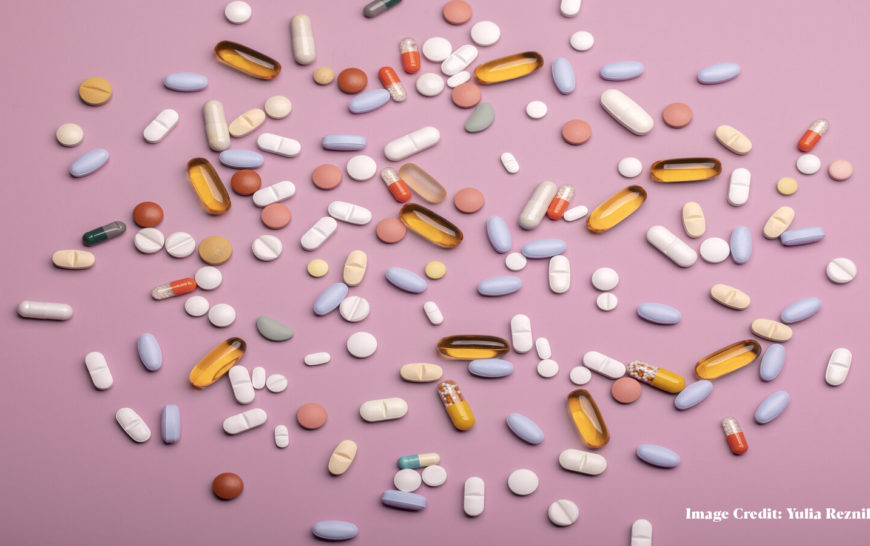
Hot Flushes, Mood Swings & Hormone Replacement Therapy: Menopause 101
Knowledge is power – and in this case, it’s the slightly sobering realisation that our inner workings won’t always be the dewy, hydrated, self-lubricating WAPs of our youth but we grow through what go through pals, and if all else fails, we’re sure TikTok will have discovered some kind of hack by then. We’ve got this.
Ah, the menopause. It’s the reason our mums get weirdly into portable fans, this much we know but beyond that, we are in the dark, mystified and blissfully ignorant about what the menopause – actually – entails for those of us with ovaries.
Forgive the bad feminist tones here but dealing with dry fannies, night sweats and unsympathetic GPs doesn’t sound like that much of a hoot alas, we’ve gotta get the t-shirt one day so we may as well know what life has in store for us once our periods have done a Piers Morgan.
Knowledge is power – and in this case, it’s the slightly sobering realisation that our inner workings won’t always be the dewy, hydrated, self-lubricating WAPs of our youth but we grow through what go through pals, and if all else fails, we’re sure TikTok will have discovered some kind of hack by then. We’ve got this.
What is it the menopause?
The menopause refers to the time in a woman’s life, typically between the age of 45-55, when the menstrual cycle stops permanently. At this stage, the ovaries have stopped releasing eggs and producing high levels of oestrogen meaning a woman is no longer fertile.
You have reached menopause when you have not had a period or spotting for one consecutive year. Depending on your medical history and your symptoms, you may also have blood tests to rule out other underlying conditions and confirm a menopause diagnosis.
The perimenopause, or menopause transition as it’s sometimes referred to, occurs well before you officially hit menopause, usually between 4-8 years. As hormone levels change, you may experience some symptoms commonly associated with menopause, such as irregular periods, trouble sleeping, breast tenderness, hair changes, headaches, weight gain, loss of sex drive and a wide-ranging list of other physical and emotional symptoms. During the perimenopause, you may still ovulate, so you can still very much get pregnant, even if you’ve missed a period for a month or more.
Symptoms of the menopause
Due to the hormone flux, many women experience physical, emotional and psychological changes. Everyone’s experience of the menopause is unique but some of the most common symptoms can include heavier, lighter or less frequent periods, night sweats and hot flushes (extreme heat in the upper body) – all very similar to some of the symptoms experienced during the perimenopause stage and each can vary in severity. Some women may also experience bouts of increased anxiety and depression.
Can the symptoms be treated?
If your symptoms are severe or they’re impeding your quality of life, hormone therapy may be an effective treatment. Hormone Replacement Therapy (HRT) is a treatment to relieve the symptoms of the menopause such as night sweats, vaginal atrophy (thinning of the walls of the vagina caused by decreased oestrogen) and hot flushes.
There are two types of HRT: combined HRT replaces the two main hormones your ovaries no longer produce (oestrogen and progestogen) and is offered to those people who still have their womb as the progestogen protects against the risk of womb cancer associated with oestrogen-only HRT. Oestrogen-only HRT is for those who have had their womb removed in a hysterectomy.
Your HRT treatment routine will either be cyclical (also known as sequential HRT) or continuous, depending on whether you’re in the early stages of menopause or you’ve had symptoms for some time.
As stated on NHS.uk, you can usually start HRT as soon as you start experiencing symptoms of the menopause and it can be delivered in different ways including pessaries, tablets, topical hormone therapy, skin patches and gels to help with dryness.
Once the menopausal symptoms have subsided, usually within a few years, you can gradually decrease your dose and taper off the hormones.
Lifestyle changes such as practising relaxation techniques, supplementing your diet with calcium, vitamin D and magnesium and keeping active can also help manage mild to moderate symptoms.
Early menopause
Some women enter menopause early, before they hit 45. In some cases, menopause is induced by surgery, genetics, certain health conditions such as autoimmune diseases and cancer treatment but the cause can’t always be determined.
Premature menopause
Premature Ovarian Insufficiency (POI) happens when a woman’s ovaries stop functioning before she has reached her 40s, meaning they do not produce normal levels of oestrogen or release eggs regularly. Unlike early menopause, however, some women with POI can still have a period and may, in some cases, still get pregnant.
Affirming footnotes
Whilst it can be a strange time for women going through the menopause transition, it’s not all downhill from here. It’s a milestone just as much as any other life experience and your worth is not diminished by the passing of years. Ageing is a privilege.
Just as we discover another layer of our selfhood during adolescence, the menopause isn’t all doom, gloom and vaginal droughts. It can be akin to shedding your old skin and reinventing yourself.
Sex without having to give a single thought to birth control? Reveal yourself, menopause. No more nice pants lost to period leakage? Unleash the spenny lace, queen.
Like having twins or living through lockdown, there are many, many good exhilarating moments ahead, people just don’t seem to share them quite as much.







